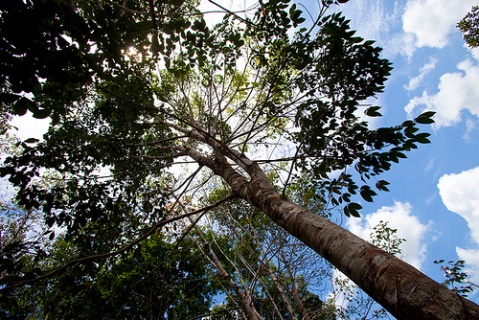The Norwegian government represented by the Minister of Climate and the Environment, Tine Sundtoft visiting Indonesia to review the development of Reduced Emissions from Deforestation and Forest Degradation (REDD+).
On her visit on 22-25 April, Sundtoft will hold a meeting with all stakeholders from the environment and forestry affairs, both central and local level. He is also scheduled to observe directly the progress of REDD+ pilot project in Central Kalimantan. In Central Kalimantan, Sundtoft will visit the site of REDD+ programme in Bukit Tunggal village, wetland conservation area in Jabiren village and to Orangutan habitat in Tahai lake. The visit is a follow-up of memorandum of understanding between Indonesia and Norway signed since May 2010. At that moment norway has committed to give 1 billion USD to support the emission reduction carbon in Indonesia.
Chairman of BP REDD+, Heru Prasetyo in the press conference, Jakarta (22/4), welcomed the arrival of the Minister Sundtoft. “Don’t look the aid from the Norwegian Government only from its factual values, because this cooperation also attract international attention to overcome the emission problem,” said Heru. He admitts that now, he is seeing the possible cooperation with several countries, due to the fact it takes 5 billion USD funds to achieve 41% decrease in emissions target in 2020.
Related to the grants from Norway, Deputy of planning and funding BP REDD+, Agus Sari explains it will run in two stages. The first stage of the program worth 200 million USD had finished. Next, the second stage is about to begin in parallel with the implementation of the program in 11 provinces who became representatives of 70% of the national forest area,” he explained. That 11 provinces are Aceh, West Sumatra, Riau, Jambi, South Sumatra, Central Kalimantan, East Kalimantan, West Kalimantan, Central Sulawesi, Papua and West Papua.
On the other hand, Genaral Secretary of Indigenous People Alliance of Archipelago (Aliansi Masyarakat Adat Nusantara – AMAN) Abdon Nababan commented that in the future the REDD+ programme should include indigenous communities more intensive. “Justice for local communities as the land owner should become an important agenda. 40 million indigenous people throughout Indonesia should be involved as an actor in the implementation of REDD+, not only as an audience,” he hoped. Azhari Fauzi
